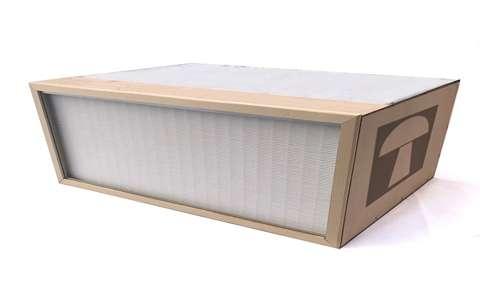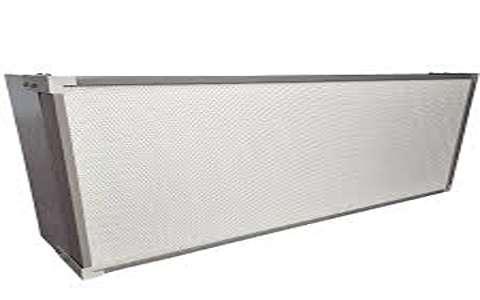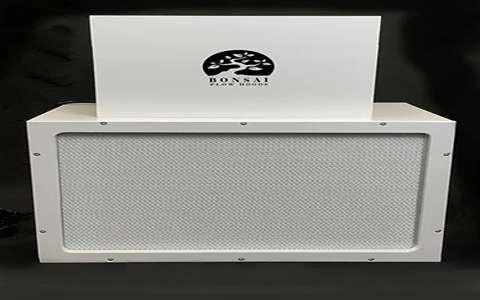In today’s ever-evolving world, industries such as pharmaceuticals, electronics, and healthcare demand impeccable cleanliness and contamination control.
.
 To achieve these high standards, cleanroom technologies play a crucial role.
To achieve these high standards, cleanroom technologies play a crucial role.
Among these, laminar flow hood filters have emerged as a game-changer.
In this article, we will delve into the benefits, working mechanisms, and applications of laminar flow hood filters, enhancing their prominence in enhancing cleanroom efficiency.
Laminar flow hood filters, also known as laminar flow hoods or biosafety cabinets, are specialized filtration devices that create a sterile work environment by providing a steady flow of filtered air.
These filters are typically used in laboratory settings, research facilities, and production areas where maintaining a contaminant-free atmosphere is essential.
2. Working Mechanism: Laminar flow hood filters work by utilizing high-efficiency particulate air (HEPA) filters.
These filters trap and remove airborne particles, bacteria, and other contaminants, ensuring a clean and controlled working environment.
The HEPA filters facilitate a unidirectional airflow, either vertically (vertical laminar flow) or horizontally (horizontal laminar flow), depending on the hood’s design.
3. Benefits of Laminar Flow Hood Filters: a. Contamination Control: Laminar flow hoods provide a sterile workspace, preventing cross-contamination between different work areas or experiments.
The HEPA filters capture particles as small as 0.3 micrometers with an efficiency of 99.97%, ensuring the highest level of cleanliness.
b. Personnel and Product Protection: The laminar flow of filtered air shields both the operator and the sample from potential external contaminants.
This helps safeguard delicate samples and protects researchers or technicians from harmful biological or chemical agents.
c. Energy Efficiency: Laminar flow hoods are designed to optimize energy consumption.
By utilizing advanced airflow control systems and fan speed adjustment mechanisms, these filters reduce energy expenditure while maintaining a high level of performance and cleanliness.
d. Versatility: Laminar flow hoods come in various sizes and configurations, allowing customization according to specific requirements.
They can be portable or installed within a dedicated cleanroom, providing flexibility and adaptability to different workspace needs.
4. Applications: a.
Pharmaceutical Industry: Laminar flow hoods are widely used in pharmaceutical manufacturing to ensure an aseptic environment during drug production and handling.
They prevent airborne contamination, thus safeguarding the quality, efficacy, and integrity of the drugs.
..
 b. Healthcare Facilities: Hospitals and clinics utilize laminar flow hoods in sterile compounding areas, where they provide a controlled environment for the preparation of intravenous medications, hazardous drugs, and other high-risk sterile products.
b. Healthcare Facilities: Hospitals and clinics utilize laminar flow hoods in sterile compounding areas, where they provide a controlled environment for the preparation of intravenous medications, hazardous drugs, and other high-risk sterile products.
c. Electronics Manufacturing: The electronics industry relies on laminar flow hoods during the assembly and testing of delicate microelectronics components.
These hoods aid in keeping dust, fibers, and other contaminants away from sensitive electronic devices, ensuring optimal performance.
d. Research Laboratories: Laminar flow hoods are vital in various research laboratories, such as molecular biology, genetic engineering, and biochemistry.
They maintain the purity of cell cultures and prevent cross-contamination in DNA extraction, protein analysis, and other delicate procedures.
Conclusion: Laminar flow hood filters have become an indispensable tool for industries requiring cleanroom environments.
By effectively controlling contamination and protecting personnel and products, these filters enhance operational efficiency, product integrity, and worker safety.
With advancements in technology, laminar flow hood filters continue to evolve, ensuring optimal performance and adaptability across various industries.
As businesses strive to maintain the highest cleanliness standards, investing in laminar flow hood filters becomes a vital step toward achieving operational excellence.
5. Maintenance and Care: To ensure the continued efficiency and longevity of laminar flow hood filters, proper maintenance and care are essential.
Regular cleaning and replacement of HEPA filters are necessary to maintain optimal performance.
It is recommended to follow the manufacturer’s guidelines and schedule maintenance procedures accordingly.
Additionally, monitoring air velocities, pressure differentials, and conducting regular airflow tests will help identify any potential issues and ensure that the laminar flow hood filter is functioning at its best.
…
 6. Regulatory Compliance: Industries that require cleanroom environments, such as pharmaceuticals and healthcare, must adhere to strict regulatory standards.
6. Regulatory Compliance: Industries that require cleanroom environments, such as pharmaceuticals and healthcare, must adhere to strict regulatory standards.
Laminar flow hood filters play a crucial role in meeting these requirements by providing a controlled environment that meets or exceeds the necessary cleanliness standards.
Compliance with regulatory standards not only ensures the production of safe and effective products but also protects businesses from legal liabilities and reputational risks.
7. Investment Considerations: Acquiring laminar flow hood filters involves an investment of both time and financial resources.
However, the benefits and long-term cost savings outweigh the upfront expenses.
It is crucial to evaluate the specific needs of your industry, consider the required airflow volume, and choose a reputable supplier who can provide reliable and quality laminar flow hood filters.
Investing in high-quality laminar flow hood filters from the start will result in enhanced cleanroom efficiency, reduced contamination risks, and increased productivity.
Conclusion: Laminar flow hood filters have proven to be an indispensable asset in industries that prioritize cleanliness and contamination control.
These filters provide a sterile environment, protect personnel and products, and ensure compliance with regulatory standards.
By choosing the right laminar flow hood filters and implementing proper maintenance procedures, businesses can achieve optimal cleanroom efficiency, improve product quality, and maintain a competitive edge in their respective industries.
As the demand for cleanliness and contamination control continues to grow, laminar flow hood filters will remain a vital component of a successful cleanroom operation.



